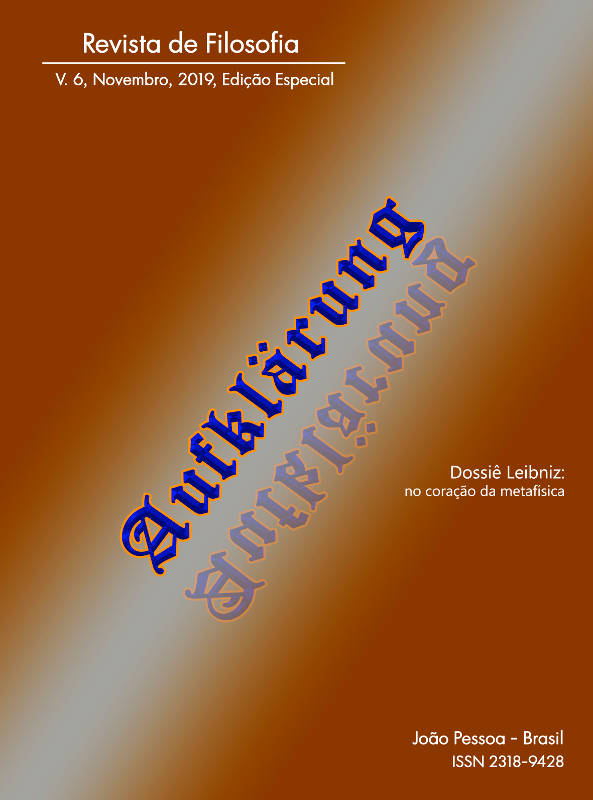Kant: Leibniz and the amphibolia of reflection concepts
DOI:
https://doi.org/10.18012/arf.2019.49461Abstract
In the section on the Amphiboly of the Concepts of Reflection, Kant examines the mistake that results from the confusion in the roles of the faculties of understanding and sensibility, a mistake that leads to taking the objects of knowledge, the phenomena, for things in themselves and, thereby, induces the faculties of knowledge to transcend the limits of possible experience established in the Transcendental Aesthetic and Logic of his Critique of Pure Reason. This paper will show that, besides a critique of both Locke's empiricism and Leibniz's innatism, the Amphiboly is the section in which Kant deals with the evaluation of the nature and results of the epistemology he develops in the Critique and in which he confronts it with these two great epistemologies. We will show that, although he attributes to both Locke and Leibniz the amphibological mistake, Kant focuses his criticism on Leibniz insofar as this critique brings him closer to the empiricist epistemology and its rejection of all ontology of the subject.
Downloads
Additional Files
Published
How to Cite
Issue
Section
License
Journal general policy
1.This journal works under a Creative Commons License aplied to online journals. That icence can be read in the following link: Creative Commons Attribution 4.0 International (CC BY 4.0).
2.Accordingly to this License, a)the journal declares that authors hold the copyright of their articles without restrictions, and they can archieve them as post-print elsewhere. b)the journal allow the author(s) to retain publishing rights without restrictions.
Metadata Policy for information describing items in the repository
1. Anyone may access the metadata free of charge at anytime.
2.The metadata may be re-used in any medium without prior permission, even commercial purposes provided the OAI Identifier or a link to the original metadata record are given, under the terms of a CC BY license refered for the Journal.







































